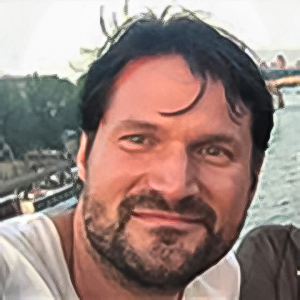
In this edition of "Meet the members", we interview Yaroslau Compta, neurologist at the Hospital Clínic of Barcelona, Spain part of the ERN-RND "Dystonias, NBIA, Paroxysmal Disorders" as well as "Atypical Parkinsonism: MSA, PSP, Genetic Parkinson's Disease" Disease Groups (DG). He will tell us a bit more about his work in the hospital, within ERN-RND and his expectations for the network.
Please briefly introduce yourself and your hospital.
My name is Yaroslau Compta. I got my MD degree in 2002 and my PhD in 2013 at University of Barcelona. In 2006 I got my Neurology specialization at Hospital Clínic de Barcelona, a university and reference Hospital with a long history and tradition in teaching, care and research.
1. What is your profession (department, affiliation, etc.) and your medical expertise or specific field of interest/why?
I am a consultant at the Parkinson’s disease and Movement Disorders Unit of the Neurology Service of Hospital Clínic de Barcelona. As such my medical expertise and specific field of interest are movement disorders, which range from frequent conditions (Parkinson’s disease, essential tremor) to rare disease (in my case chiefly dystonias and atypical parkinsonisms). Particularly I work in biomarkers (molecular and imaging) of and clinical trials in progressive supranuclear palsy, corticibasal degeneration and multiple system atrophy. Recently I have also gained interest in health and therapeutic education programs for these conditions working with the advanced practice nurse of our team and other health professionals.
2. What do you like most about your work and what is the biggest challenge specially in regards to working on rare diseases?
What I like most is that it merges clinical work with research and teaching, and especially with regard to rare diseases that there is still a long way to go which allows for contributing to knowledge not only by means of sophisticated methods, but also with careful clinical observation.
3. How do you participate in ERN-RND?
I am part of the groups of dystonia and atypical parkinsonsims.
4. What are your expectations for the network?
That it will imply improved care and also research all across the continent, with shared resources and avenues for collaboration, from registries to clinical trials, as well as teaching to junior staff and also networking with other specialists, general practitioners, advanced practice nurses, geriatricians, and other health professionals.
5. How do you think patients and clinicians can work together/why do you think it is important?
Designing not only better care (from thinking about how refurbishing facilities to how organizing clinics, particularly interdisciplinary ones) but also research: topics of interest (from studies on pathophysiology and pharmacological clinical trials to most-needed studies on non-pharmacological approaches and therapeutic education programs, as well as care in the community, outside the university hospital settings, particularly in end-stage disease).
You are an ERN-RND full member or affiliated partner and would like to participate? Please contact us.
